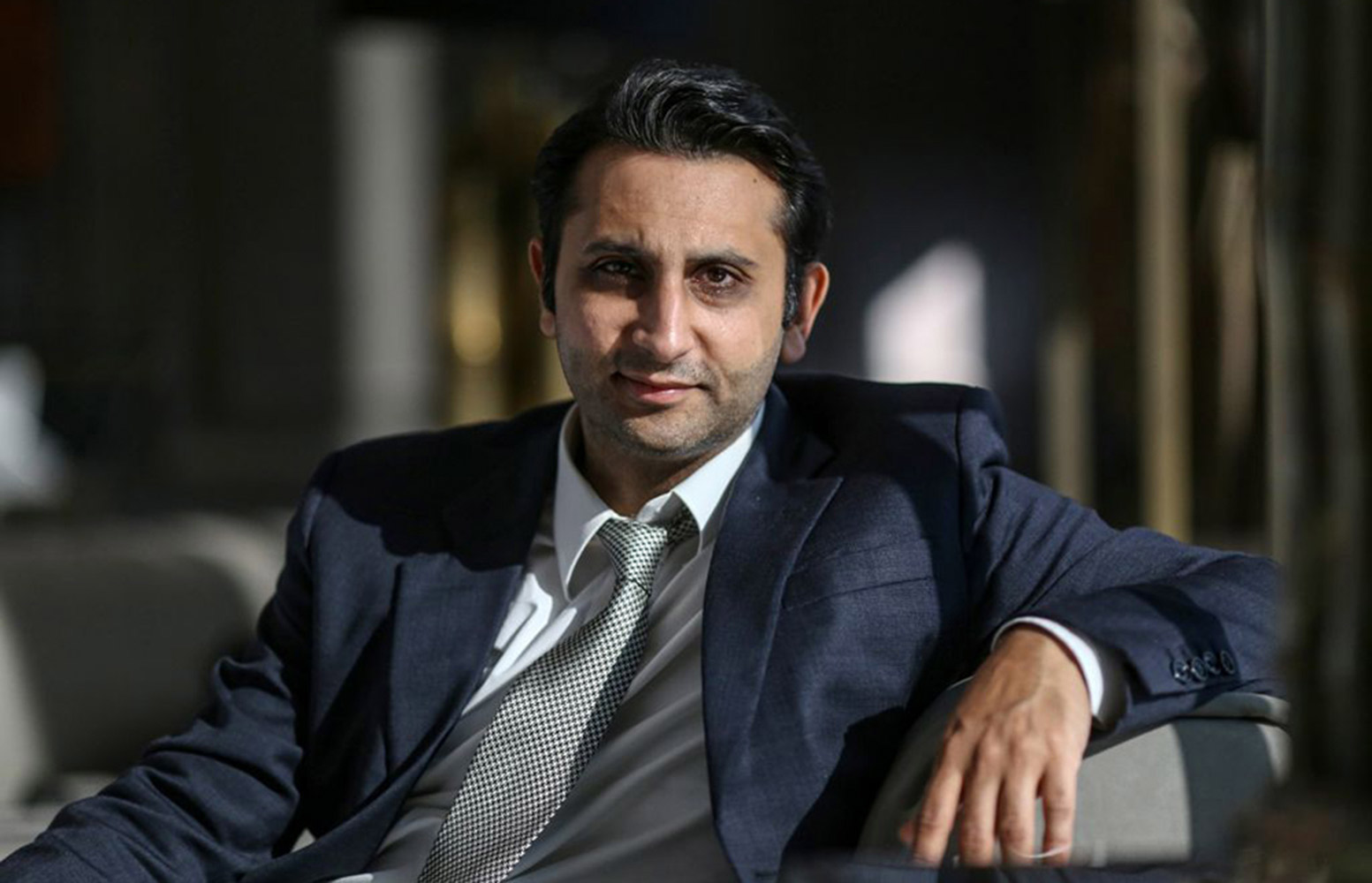
印度血清研究所(Serum Institute of India)是世界上極具規模的疫苗生產商,該公司于2月21日宣布將優先生產疫苗供應印度國內,之后再投入到其他數十個國家,此舉可能會推遲疫苗出口,阻礙其原本的疫苗供應計劃。
“致各國及各政府,”印度血清研究所的首席執行官阿達爾·普納瓦拉于2月21日在推特(Twitter)上寫道。“我懇請大家保持耐心,(印度血清研究所)已經接到指示,將優先考慮印度的巨大需求,并平衡來自其他國家的需求。我們正在全力以赴。”
阿達爾·普納瓦拉雖然表示血清研究所收到了優先供應疫苗給印度的指示,但并沒有透露是來自印度政府或其他渠道。
印度上個月發起了一項運動為16億人口接種疫苗,此舉迫在眉睫,因為該國新冠確診病例的數量僅次于美國。印度有1100萬人感染,15萬6千人死亡(截至本文完稿時——編注)。
血清研究所沒有回應《財富》雜志的置評請求。
血清研究所承擔著向世界供應新冠疫苗的關鍵任務。今年1月,該公司表示有能力在2021年生產15億劑疫苗,并計劃在年底前將年生產能力提高到25億劑。血清研究所目前的生產能力已經超過其競爭對手。它每月能夠生產7000萬劑疫苗,而美國的輝瑞公司(Pfizer)每月僅可以生產2000萬劑。
2020年6月,血清研究所與英國制藥公司阿斯利康(AstraZeneca)達成協議,將生產后者研發的10億劑新冠疫苗,該疫苗在三期臨床試驗中的有效性在62%至90%之間。雙方一展開合作,血清研究所就承諾將與非富裕國家分享疫苗。
今年1月,普納瓦拉在與印度另一家疫苗生產商巴拉特生物技術公司(Bharat Biotec)的聯合聲明中,重申了血清研究所的全球承諾。
兩家公司在聲明中表示:“我們充分認識到疫苗對人民和國家具有同等的重要性。我們在此傳達一份共同承諾,向全球提供我們的新冠疫苗。”
血清研究所生產的阿斯利康疫苗名為Covishield,其已經在孟加拉、尼泊爾、摩洛哥和南非等11個國家獲得批準。世界衛生組織(World Health Organization)也在2月16日批準Covishield用于緊急情況,此舉為新冠肺炎疫苗實施計劃部署該疫苗鋪平了道路。這一全球疫苗計劃由世衛組織發起,旨在為中低收入國家提供疫苗。
世衛組織在本月早些時候表示,要求血清研究所在2021年上半年向新冠肺炎疫苗實施計劃供應2.4億劑Covishield疫苗。根據該計劃,其中9700萬劑將用于印度國內,其他將送往國外。
血清研究所則在上個星期宣布,根據其與美國疫苗生產商Novavax的另一項合作項目,公司將向新冠肺炎疫苗實施計劃額外供應11億劑疫苗。
普納瓦拉在2月21日的聲明是否會阻礙血清研究所兌現這些承諾,或者影響程度有多大,目前尚不清楚。
2020年9月,普納瓦拉在接受《財富》雜志采訪時表示,他已經準備好接受挑戰,向全世界提供更好的新冠疫苗。
“我感覺自己已經肩負(這)一項可怕的責任,它每天都驅使我加快辦事速度。”普納瓦拉說道。“(不過)我現在已經習慣。事實上,它給了我幫助和動力。”(財富中文網)
譯者:秦維奇
印度血清研究所(Serum Institute of India)是世界上極具規模的疫苗生產商,該公司于2月21日宣布將優先生產疫苗供應印度國內,之后再投入到其他數十個國家,此舉可能會推遲疫苗出口,阻礙其原本的疫苗供應計劃。
“致各國及各政府,”印度血清研究所的首席執行官阿達爾·普納瓦拉于2月21日在推特(Twitter)上寫道。“我懇請大家保持耐心,(印度血清研究所)已經接到指示,將優先考慮印度的巨大需求,并平衡來自其他國家的需求。我們正在全力以赴。”
阿達爾·普納瓦拉雖然表示血清研究所收到了優先供應疫苗給印度的指示,但并沒有透露是來自印度政府或其他渠道。
印度上個月發起了一項運動為16億人口接種疫苗,此舉迫在眉睫,因為該國新冠確診病例的數量僅次于美國。印度有1100萬人感染,15萬6千人死亡(截至本文完稿時——編注)。
血清研究所沒有回應《財富》雜志的置評請求。
血清研究所承擔著向世界供應新冠疫苗的關鍵任務。今年1月,該公司表示有能力在2021年生產15億劑疫苗,并計劃在年底前將年生產能力提高到25億劑。血清研究所目前的生產能力已經超過其競爭對手。它每月能夠生產7000萬劑疫苗,而美國的輝瑞公司(Pfizer)每月僅可以生產2000萬劑。
2020年6月,血清研究所與英國制藥公司阿斯利康(AstraZeneca)達成協議,將生產后者研發的10億劑新冠疫苗,該疫苗在三期臨床試驗中的有效性在62%至90%之間。雙方一展開合作,血清研究所就承諾將與非富裕國家分享疫苗。
今年1月,普納瓦拉在與印度另一家疫苗生產商巴拉特生物技術公司(Bharat Biotec)的聯合聲明中,重申了血清研究所的全球承諾。
兩家公司在聲明中表示:“我們充分認識到疫苗對人民和國家具有同等的重要性。我們在此傳達一份共同承諾,向全球提供我們的新冠疫苗。”
血清研究所生產的阿斯利康疫苗名為Covishield,其已經在孟加拉、尼泊爾、摩洛哥和南非等11個國家獲得批準。世界衛生組織(World Health Organization)也在2月16日批準Covishield用于緊急情況,此舉為新冠肺炎疫苗實施計劃部署該疫苗鋪平了道路。這一全球疫苗計劃由世衛組織發起,旨在為中低收入國家提供疫苗。
世衛組織在本月早些時候表示,要求血清研究所在2021年上半年向新冠肺炎疫苗實施計劃供應2.4億劑Covishield疫苗。根據該計劃,其中9700萬劑將用于印度國內,其他將送往國外。
血清研究所則在上個星期宣布,根據其與美國疫苗生產商Novavax的另一項合作項目,公司將向新冠肺炎疫苗實施計劃額外供應11億劑疫苗。
普納瓦拉在2月21日的聲明是否會阻礙血清研究所兌現這些承諾,或者影響程度有多大,目前尚不清楚。
2020年9月,普納瓦拉在接受《財富》雜志采訪時表示,他已經準備好接受挑戰,向全世界提供更好的新冠疫苗。
“我感覺自己已經肩負(這)一項可怕的責任,它每天都驅使我加快辦事速度。”普納瓦拉說道。“(不過)我現在已經習慣。事實上,它給了我幫助和動力。”(財富中文網)
譯者:秦維奇
The Serum Institute of India, one of the world’s largest vaccine makers, announced on February 21 that it would manufacture vaccines for India before doses earmarked for the rest of the world, a move that may delay vaccine shipments to dozens of countries and hamper the firm’s plans to share its vaccine supply.
“Dear countries & governments,” Adar Poonawalla, CEO of the Serum Institute, wrote on Twitter on February 21. “I humbly request you to please be patient, [the Serum Institute of India] has been directed to prioritize the huge needs of India and along with that balance the needs of the rest of the world. We are trying our best.”
Poonawalla did not disclose who—India’s government or someone else—had directed the Serum Institute to put domestic doses above those being sent elsewhere.
India last month launched a campaign to vaccinate its 1.6 billion people, a feat that’s especially urgent since the country ranks second behind the U.S. in confirmed COVID-19 cases. It has 11 million infections, with 156,000 deaths.
The Serum Institute did not respond to Fortune’s request for comment.
The Serum Institute is critical to supplying the world with COVID-19 vaccines. It said in January that it has the capacity to produce 1.5 billion vaccine doses in 2021 with plans to ramp up annual capacity to 2.5 billion doses by the end of the year. The Serum Institute’s manufacturing capacity is already outpacing that of its rivals. It’s currently producing 70 million shots per month compared with the 20 million doses Pfizer is producing per month in the U.S.
In June 2020, the Serum Institute struck a deal with firm AstraZeneca to manufacture 1 billion doses of the British pharmaceutical firm’s COVID-19 vaccine, which has demonstrated efficacy rates between 62% and 90% in Phase III clinical trials. From the start of the partnership, the Serum Institute pledged to share the vaccines with non-wealthy nations.
Poonawalla reiterated Serum’s global pledge in a joint statement with fellow Indian vaccine maker Bharat Biotech in January 2021.
“We are fully aware of the importance of vaccines for people and countries alike. We hereby communicate our joint pledge to provide global access for our COVID-19 vaccines,” the two companies said in a statement.
The Serum Institute’s version of the AstraZeneca vaccine, called Covishield, has been approved in 11 countries, including Bangladesh, Nepal, Morocco, and South Africa. The World Health Organization (WHO) also approved the Covishield vaccine for emergency use on Feb. 16, clearing a path for the vaccine to be deployed in the WHO’s COVAX initiative, a global vaccine program aimed at providing access to vaccines in lower- and middle-income countries.
Earlier this month, the WHO said it expected the Serum Institute to supply 240 million doses of Covishield to COVAX in the first half of 2021. As part of COVAX, the WHO said that 97 million of the Serum doses would stay in India, with the remaining supplies sent abroad.
The Serum Institute last week announced that it would supply an additional 1.1 billion doses to COVAX as part of a separate vaccine partnership with American vaccine maker Novavax.
It is unclear if or how Poonawalla’s February 21 declaration will hinder the Serum Institute’s ability to make good on those promises.
In September 2020, Poonawalla told Fortune that he was ready to take on the challenge of providing the world with better access to COVID-19 vaccines.
“[It’s a] scary responsibility that I kind of feel I’m carrying on my shoulders—that is driving me every day to do things quicker,” Poonawalla said. “[But] now I’m very used to it. In fact, it has helped and motivated me.”






